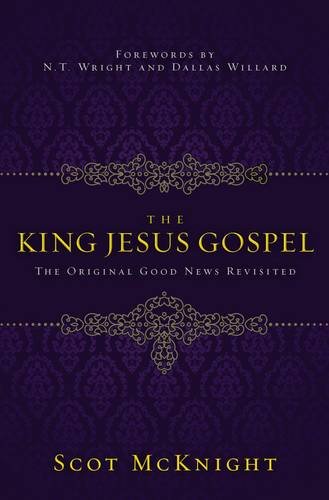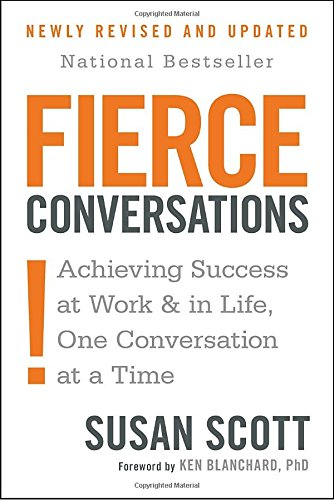Top 10 Books of 2012
by Rick Love
Here are the top ten books I’ve read in 2012. These books provide a rock-solid biblical and practical foundation for followers of Jesus who want to live out their faith in a glocalized world. The first two books articulate a profound summary of the Gospel. The next three books describe how to practically love our neighbors. The remainder of the list includes books on leadership, social media, business, politics, conflict resolution, and coaching. Enjoy!
The Prodigal God: Recovering the Heart of the Christian Faith
Timothy Keller
Keller writes about the famous parable known as the Prodigal Son, but he shows that it is not simply a one-character drama. It is about the sinful, wayward son; the self-righteous elder brother; and the welcoming, forgiving Father. The title of Keller’s book, 'The Prodigal God,' catches most of us off guard (just like the parable would to its original hearers). We think of prodigals as people who have gone astray. But the term "prodigal" literally means “recklessly spendthrift” – an apt description of God’s amazing grace. “The Father’s welcome to the repentant son was literally reckless because he refused to 'reckon' or count his sin against him or demand repayment” (p. xv). The result? The younger son was embraced and welcomed back into the family, while the elder brother went off mad and resentful. The parable, and this book, highlights the beauty of the Gospel and exposes the critical spirit of the elder brother. As Keller wisely notes, “Because the elder brother is more blind to what is going on, being an elder-brother Pharisee is a more spiritually desperate condition” (p. 54). “Jesus’ teaching consistently attracted the irreligious while offending the Bible-believing, religious people of his day. However, in the main, our churches today do not have this effect” (p. 18). Here is a book that will not only help you better understand the Gospel but also live out Gospel ethics!
The King Jesus Gospel: The Original Good News Revisited
Scot McKnight
This is one of the best books I have ever read about the meaning of the Gospel. McKnight gives a positive and detailed presentation of the Gospel in only 177 pages! His brilliance and brevity is matched, however, by his devastating critique. Evangelicals have wrongly equated the Gospel with personal salvation. McKnight rightly shows that this narrow definition of the Gospel has been ripped out of context – ignoring the broader story of the Bible and the story of Jesus. The Gospel IS about personal salvation, but it is also about so much more. Thus McKnight exclaims, “a gospel culture is one shaped by the Story of Israel and the Story of Jesus Christ, a story that moves from creation to consummation, a story that tells the whole Story of Jesus and not just a Good Friday story, and a story that tells not just of personal salvation but of God being all in all. It tells the story that Jesus, not any human ruler, is Lord over all" (p.62). This is the King Jesus Gospel!
Bold as Love
Bob Roberts Jr.
What happens when a Southern Baptist Pastor takes the Great Commandments as seriously as he does the Great Commission? We don’t have to guess. It is happening at Northwood Church in Dallas, Texas. Bob Roberts Jr. and his church are breaking out of the evangelical box and modeling bold love. Bob’s latest book, Bold as Love, describes this pilgrimage into a life of radical, loving service in an interconnected world. Like his previous books, it is filled with examples of bridge-building love and faith-stretching stories – funny stories – with a strong emphasis on Christian-Muslim relations.
Every Good Endeavor: Connecting Your Work to God’s Work
Timothy Keller and Katherine Leary Alsdorf
"Pastors are spiritual. Businessmen aren’t. Prayer is spiritual. Work isn’t. The physical world is bad. The unseen heavenly realm is good." This kind of thinking has hindered the church from the beginning. Every Good Endeavor breaks down these false sacred-secular categories by demonstrating the vital connection between a person’s work and their walk with God. Keller and Alsdorf articulate a profoundly biblical and practical theology of work. This book not only helps us see the connection between our work and our faith; it also helps us connect with those in the workplace. “When we learn to value all people’s work and all kinds of work, we are moving into a realm of Christian theology called 'common grace,' … What can Christians assume they have in common with people … who are not followers of Jesus? Does God work in the broader reaches of cultural interaction to bestow certain blessings on all people - blessings that provide the basis for Christians to cooperate with, and learn from, non-Christians? The Bible’s answer is 'yes.' ” (p. 186).
The Art of Neighboring
Jay Pathak and Dave Runyon
What happens when hundreds of churches decide to obey both the Great Commandments and the Great Commission? Cities are changed! Pathak and Runyon describe a proven, workable strategy for churches everywhere to take Jesus’s command to love our neighbor seriously. No theory here. They have mobilized hundreds of churches who are actively implementing Jesus’s teaching in their neighborhoods. And they do not see the art of neighboring as an evangelistic strategy. It's about obedience to Jesus. As they say, “We don't love our neighbors to convert them; we love our neighbors because we are converted" (p. 110). Chapter seven, “Motives Matter,” is worth the cost of the book. In it, the authors do a great job of explaining the relationship between the Great Commandment and the Great Commission.
Platform: Get Noticed in a Noisy World
Michael Hyatt
Michael Hyatt is a visionary leader with social media competence. His book Platform will help anyone who has a vision to harness the power of social media for maximum impact. Platform is both inspirational and instructional. Visionary questions and strategic suggestions will stimulate your leadership juices. Platform is also a brilliant “how-to” book on social media. I find myself reviewing it again and again. In addition, Hyatt gives wise counsel about making money. “You really can monetize your art without selling your soul... The key to monetizing your art without selling your soul is to offer ads, products, and services that are congruent with your brand and will add value to your readers” (p.214, 216). I would now put this book in my top ten books on leadership!
The Missional Entrepreneur: Principles and Practices for Business as Mission
Mark L. Russell
I think this is the best book available on Business as Mission (BAM). Like most books of this genre, Russell articulates a solid theology of work and tentmaking. His chapters on shalom, blessing, and motives are particularly helpful and make this book stand out. But his research is especially noteworthy. Russell conducted 128 interviews in Chiang Mai with 12 BAM enterprises. The result? He noticed that the companies that were producing positive ministry and/or business results tended to have four characteristics, while those that were not tended to have four opposing characteristics. The high performers had a blessing orientation, openness regarding purpose and identity, partnership with local churches and ministries, and high cultural adaptation. The low performers had a converting orientation, a secrecy regarding purpose and identity, independence, preferring not to partner with others, and a low cultural adaptation.
A Public Faith: How Followers of Christ Should Serve the Common Good
Miroslav Volf
According to Miroslav Volf, the famous Yale Theologian and Peacemaker, a vision of human flourishing and the common good is the main thing that followers of Christ bring into the public sphere. So how do we implement this practically? Volf describes three possible options for faith in the public sphere. Religious totalitarianism (like some extreme forms of Islam and even Christianity) seeks to impose faith on everyone. By contrast, others believe that faith is a private affair only – excluded from the public sphere. Volf argues for a third option: pluralism. “Christians, even those who in their own religious views are exclusivists, ought to embrace pluralism as a political project” (p. xvii). “Christ’s command, 'in everything do to others as you would have them do to you (Matt. 7:12) entails that Christians grant to other religious communities the same religious and political freedoms that they claim for themselves” (p. xvi). In a globalized world, Volf’s call to embrace pluralism as a political project is both wise and prophetic. He articulates the path of peace in a world of conflict.
Conflict Resolution
Daniel Dana
This is one of the best books I’ve read about the practice of mediation. Dana masterfully describes the tools, terms, strategies, and steps of conflict resolution. He describes how managers can mediate as well as how to do self-mediation, team mediation, and preventative mediation. He also includes an important chapter on the “Strategic Management of Organizational Conflict.” This is a book you will return to again and again as you mediate conflict. My wife Fran and I are certified mediators and trainers with Daniel Dana’s organization, MTI (Mediation Training Institute International).
Fierce Conversations: Achieving Success at Work & in Life, One Conversation at a Time
Susan Scott
Scott takes us through seven principles of fierce conversations with stimulating insights, humorous anecdotes, and practical advice. Her principles call us to bravely confront difficult interpersonal issues. Even though she writes as a coach and consultant, her book also has brilliant insights for counselors, spiritual directors, and peacemakers. “Every conversation we have can change the trajectory of a business, a career, a marriage or a life, even if it's a conversation we need to have with ourselves,” says Scott on page one of her dynamic book. "I am convinced," she says, "that our work, our relationships, and, in fact, our very lives succeed or fail gradually, then suddenly, one conversation at a time. Fierce conversations surge from a genuine desire to be committed to our relationships. Fierce conversations bypass shallow superficial chitchat and call us to come out from behind ourselves into the relationship and make it real." The conversation," says Scott, "is the relationship." Her chapter on tackling tough challenges with its clear and precise advice on how to take ownership of the problem while inviting the other person to do the same is one of the best peacemaking bits of advice I have come across.



















